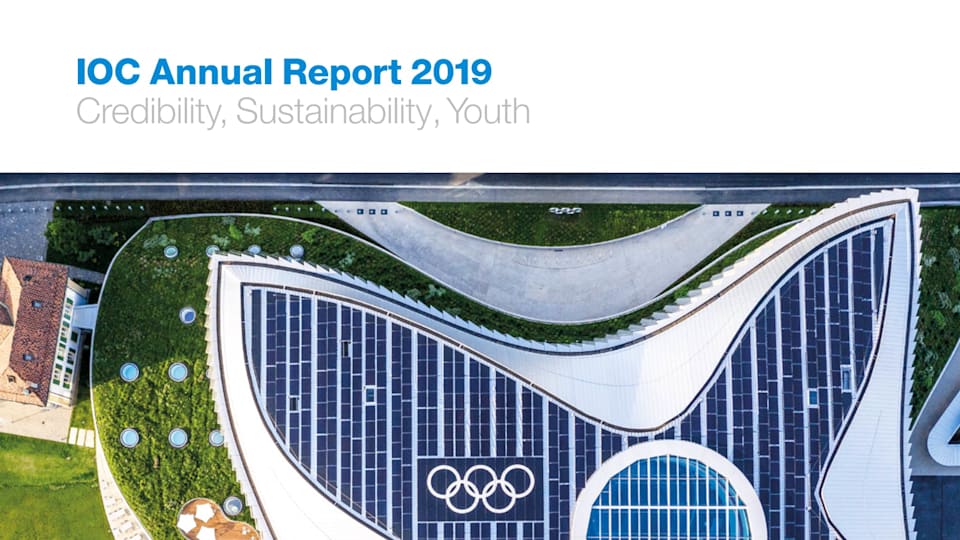International Olympic Committee publishes 2019 Annual Report and financial statements
The International Olympic Committee (IOC) today published its 2019 Annual Report and financial statements following approval by the Members at its 136th Session.

The IOC Annual Report 2019: Credibility, Sustainability, Youth is the sixth edition of the series. It is a direct result of Recommendation 29 of Olympic Agenda 2020: Increase Transparency. This edition of the Report focuses on the IOC in 2019 and does not address the current pandemic in any detail.
In addition to outlining the activities carried out during the year, it includes the audited financial statements for 2019, along with the Members’ Indemnity Policy. In the interests of full transparency and disclosure, the financial statements are prepared and audited according to International Financial Reporting Standards (IFRS), even though the IOC is not legally obligated to comply with these higher standards.
Last year was a symbolic one for the IOC as it marked the 125th anniversary of the founding of the organisation by Baron Pierre de Coubertin in 1894. Throughout the year, there were several highlights. Among them was the inauguration of Olympic House, the IOC’s new headquarters and home to the Olympic Movement. Officially opened on Olympic Day, 23 June, in the presence of IOC Members, presidents of IFs and NOCs, Olympians and local and national dignitaries, Olympic House is one of the most sustainable buildings in the world.
This commitment to sustainability did not end with Olympic House and, throughout 2019, the IOC increased its activities in this area and continued to embed them across its operations as an organisation, as the owner of the Olympic Games and as the leader of the Olympic Movement. Initiatives included reducing the carbon footprint of the organisation’s activities and commitments to improving energy efficiency in all its operations.
A similar commitment was shown towards protecting and promoting clean athletes, with the IOC strengthening its range of programmes for athletes both on and off the field of play. This engagement with and for athletes received a resounding endorsement at the 3rd International Athletes’ Forum, which took place in Lausanne in 2019. This was the largest-ever Forum, with more than 350 athlete representatives, and participants put forward a series of robust and implementable recommendations – including calls to reinforce the organisation’s solidarity model and strengthening financial support to NOCs’ athletes’ commissions – that the IOC set about actioning immediately.
Work also continued on strengthening the Olympic Agenda 2020/New Norm; and at the 134th Session, Members elected Milano Cortina as the host of the Olympic Winter Games 2026. This will be the first edition of the Games to benefit fully from the New Norm of Olympic Agenda 2020. At the same time, a new flexible approach to selecting the hosts of future Games was adopted. All the while, preparations for Tokyo 2020 and other future editions of the Olympic Games continued apace, also integrating many of these new approaches.
Now, as the IOC and the entire world continue to grapple with the uncertainty wrought by the coronavirus pandemic, the IOC is drawing on all these initiatives and other good governance measures put in place or reinforced as it faces the future.